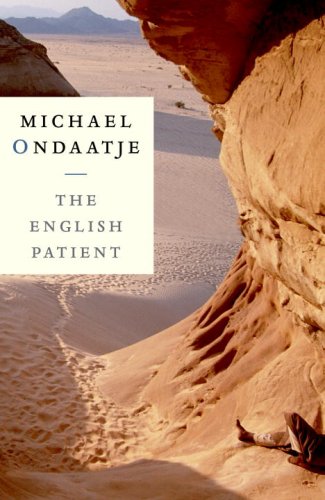Our book group choice for September 2018 is The English Patient by Michael Ondaatje. With ravishing beauty and unsettling intelligence, Michael Ondaatje’s Booker Prize-winning novel traces the intersection of four damaged lives in an Italian villa at the end of World War II.
The novel opens in 1945, in an abandoned Italian villa near Florence. The villa is being used as a temporary hospital, and it is here that a young Canadian nurse named Hana is caring for a severely burned man who is presumed to be English. The man has no memory of his past, and he is only known as the “English Patient.”
Hana and the English Patient spend their days together in the villa, and as Hana tends to his wounds, the English Patient begins to tell her stories of his past. The stories are often fragmented and dreamlike, but they gradually reveal the English Patient’s identity and his involvement in the Italian campaign of World War II.
The English Patient tells Hana about his love affair with a married woman named Katharine Clifton, and about his involvement in the search for a legendary oasis known as Zerzura. He also tells her about his experiences as a spy, and about the plane crash that left him burned and amnesiac.
As the English Patient tells his stories, Hana begins to piece together his past. She also begins to heal, both physically and emotionally. Through her care for the English Patient, Hana begins to find a sense of purpose and belonging.
The novel’s climax occurs when the English Patient tells Hana about the atomic bomb that was dropped on Hiroshima. The news of the bomb shocks the English Patient, and it also has a profound impact on Hana. The bomb represents the destructive power of the West, and it raises questions about the nature of war and violence.
The English Patient is a complex and beautifully written novel that explores the human capacity for love, loss, and redemption. The novel has been praised for its lyrical prose, its intricate plot, and its exploration of the themes of memory, identity, and loss.
Here are some additional details about the novel:
- The novel is told in a nonlinear fashion, with the patient’s memories intermingling with the present-day events at the villa.
- The novel is full of symbolism, with the desert representing the vastness of the human experience and the fire representing the destructive power of love.
- The novel has been praised for its lyrical prose and its complex characters.
- The English Patient won the Booker Prize in 1992 and was adapted into an Academy Award-winning film in 1996.
Discussion Questions The English Patient
- Did you like the book?
- How is the theme of nationality and nationhood expressed in the novel?
- Can nationality and ethnicity be transcended?
- Describe the function of the body in the novel. How is the body used as a larger metaphor for the connection between people?
- How is adultery addressed in the novel?
- Do the characters feel shame about their adultery? Why or why not?
- How would you describe the novel’s structure? How does the nonlinear storytelling affect the reader’s understanding of the characters and events?
- What is the significance of the title, The English Patient? What does it mean to be an “English patient”?
- Why does Katharine Clifton leave Almasy in the novel? What is the best explanation for her actions?
- Why is Hana so drawn to the English patient? Who does he remind her of? Why is she willing to trade her safety for his company?
- What is Kip’s initial reason for coming to the villa? Why does he leave? Does he feel inferior or superior to the English?
- Who is Hana ultimately loyal to? The English patient, Caravaggio, or Kip, or someone else?
- How does the novel explore the themes of love, loss, and memory?
- What does the novel say about the nature of art and creativity?
- How does the novel address the impact of war on individuals and societies?
- What is the significance of the desert in the novel? How does it represent the characters’ inner lives?
- What is the role of music in the novel? How does it help to tell the story?
- What does the novel say about the relationship between East and West?
- How does the novel reflect the historical context of World War II?
- What is the novel’s message? What does it leave the reader with?
- What are the novel’s strengths and weaknesses? What would you change about it?

